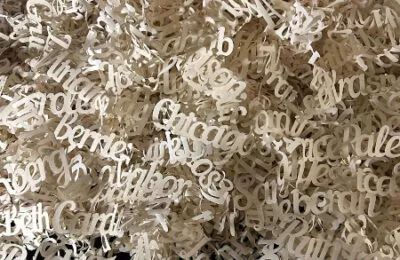Something difficult happened the other day when someone’s knee jerk reaction was blithely declaring that everything G-d does is for the best. They proceeded with a mini-lecture about how everything G-d does is good, how it’s all good.
I was offended for the person involved.
When something difficult hits someone, or when a person is enduring a painful experience, I feel the only appropriate response is empathy — to try to truly care, and truly feel, the pain of someone else’s suffering.
We do not know why G-d does anything. Even being a G-d defender, expressing with certainty how a particular trial or tribulation must be good, is inappropriate and definitely pompous.
If we were so sure of everything about G-d, we would be G-d! When we are tested by G-d, all we can really do is humbly submit to His will and endure it with all the the faith and grace and poise that lies within us.
Plenty of things feel really bad or wrong or painful. That’s OK. In Judaism, we say that we must bless the bad, just as we bless the good. When a person passes o, we do not recite the blessing of Ha-Tov ve-Hameitiv, of thanking G-d for bestowing good upon us. Rather, we acknowledge that He (in his infinite wisdom) is the true judge.
We hold back at such a moment from focusing on G-d’s goodness, even though, of course, He is good, and we try to accept the painful decree from Above.
But we do not look at something bad and pretend it is good.
Does this mean that painful and harsh experiences are not for our good? Does this mean that we are not meant to experience a particular test or difficulty? Certainly not. It is all G-d’s will, and it is all there to catalyze and spur us into action to enable us to change and grow, so that we may repair or change or self-reflect about something important in order to draw closer to each other and to G-d.
Of course, even then, we never know for certain what the correlation is between times of challenge and our behavior. All we know for sure is that, when the pain is there, so is an opportunity to choose how to handle it so that our reaction has the potential to transform the challenge into an achievement of inner development, maybe even a triumph.
Why are people afraid of emotions? Why, especially in the traditional Jewish community, are we socialized to immediately declare G-d’s goodness and say that awful things are wonderful? Why is sadness or anxiety or disappointment associated with weakness, while joy is seen to imply strength?
There are things in this world that are universally recognized as good and others that are universally recognized as bad. There are situations and places and circumstances we all avoid, and then there are all other situations and places and circumstances we all desire. Some things are objectively misfortunes.
Obviously, G-d holds sway over it all —over the cosmos and over us. And when a bad thing happens, as much as we may struggle with it at first and wish it were not so, I think we do ultimately come to accept it as our path and, in some mystical way, understand that it was, indeed, meant to be.
We all have the things we carry in life, and we all have our emotional and spiritual reserves that get us through them. Intellectually, we all know how fragile and tenuous life can be. But sometimes we come face to face with it and feel it on our skin. In a fraction of a second, one’s life can change.
We do not live in a perfect world. Even when certain pain is there as a way of healing or preventing a far greater pain from taking place, isn’t this still more bad than good? Even if the bad — or good, depending on how you look at it — is “heart surgery” in order to save someone’s life, one is still in the hospital for heart surgery! Wouldn’t it still be better not to be in this situation in the first place? Isn’t that what good is?
Everything is good in the sense of being G-d’s will, but it would be nice if the situations we are put in, here on earth, would be good in the sense of being revealed to us as good, as we here know the good in our full humanness.
Even better is to try to accept what comes without labeling it. Not as good, but not as bad, either. It is what it is. And it is mine. And I am who I am because of it. So as long as we are receiving more out of than it is taking out of us, it is my package and my purpose. It is the soul I must appreciate within.
Copyright © 2008 by the Intermountain Jewish News












